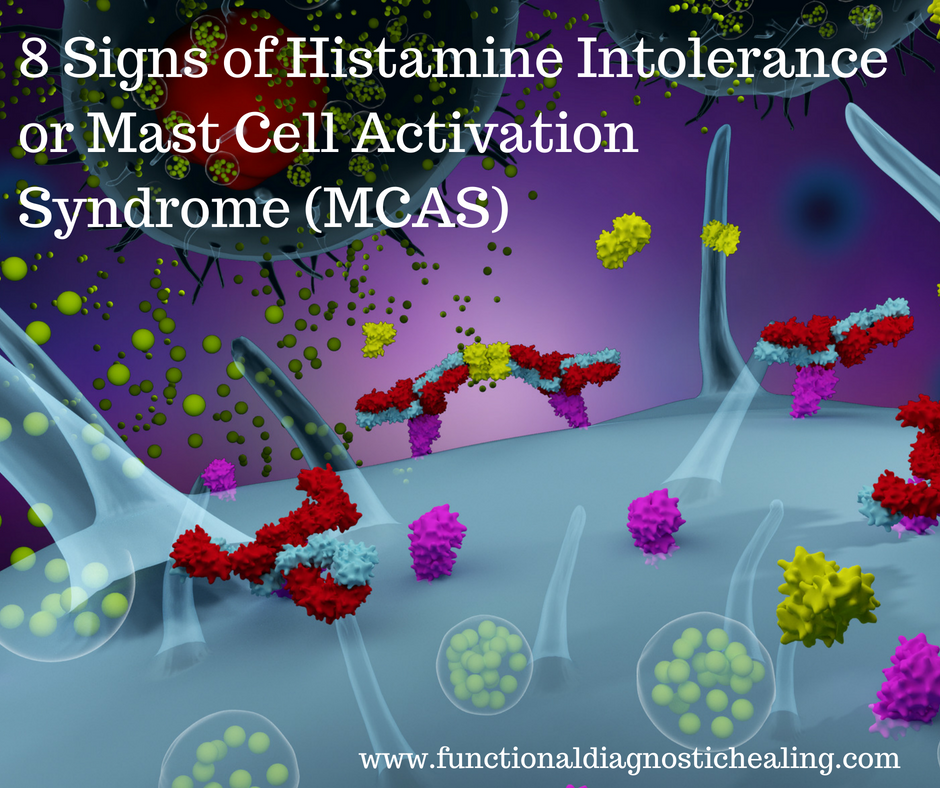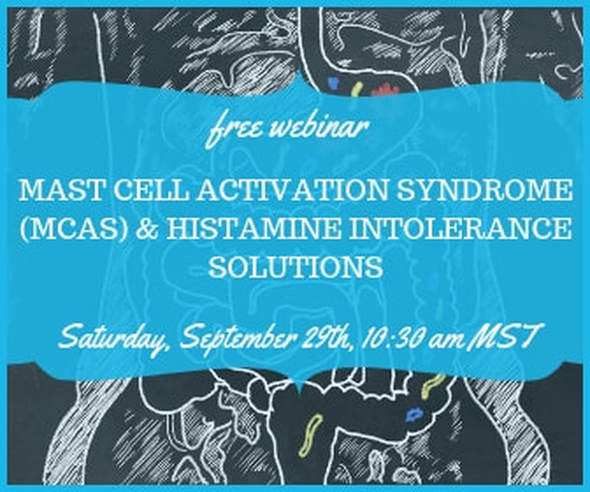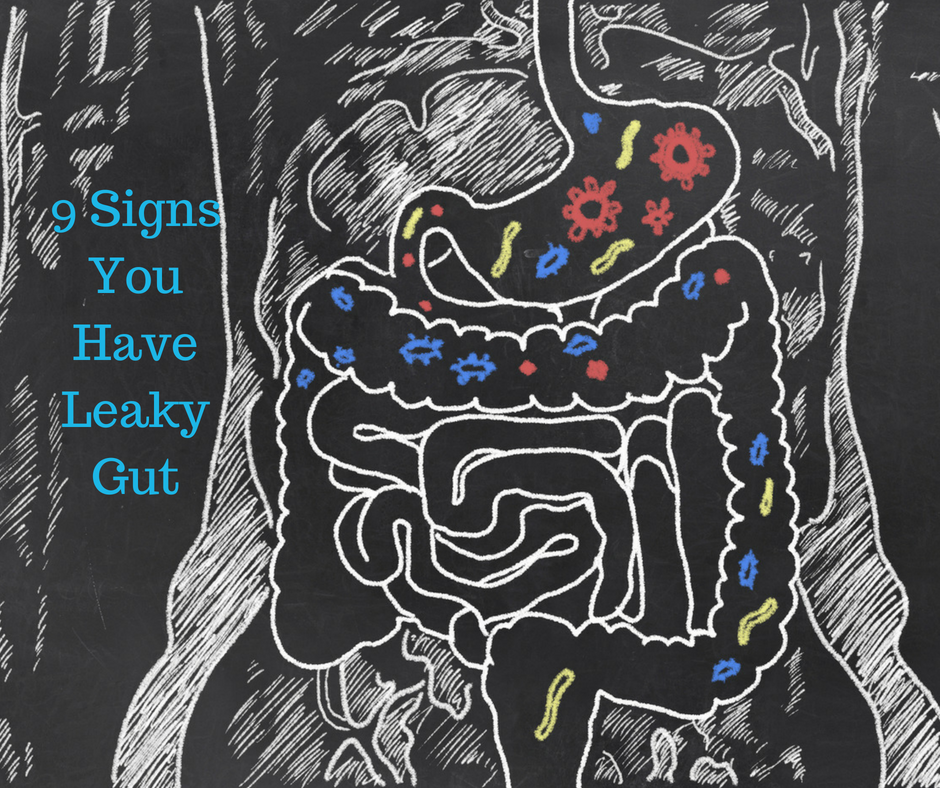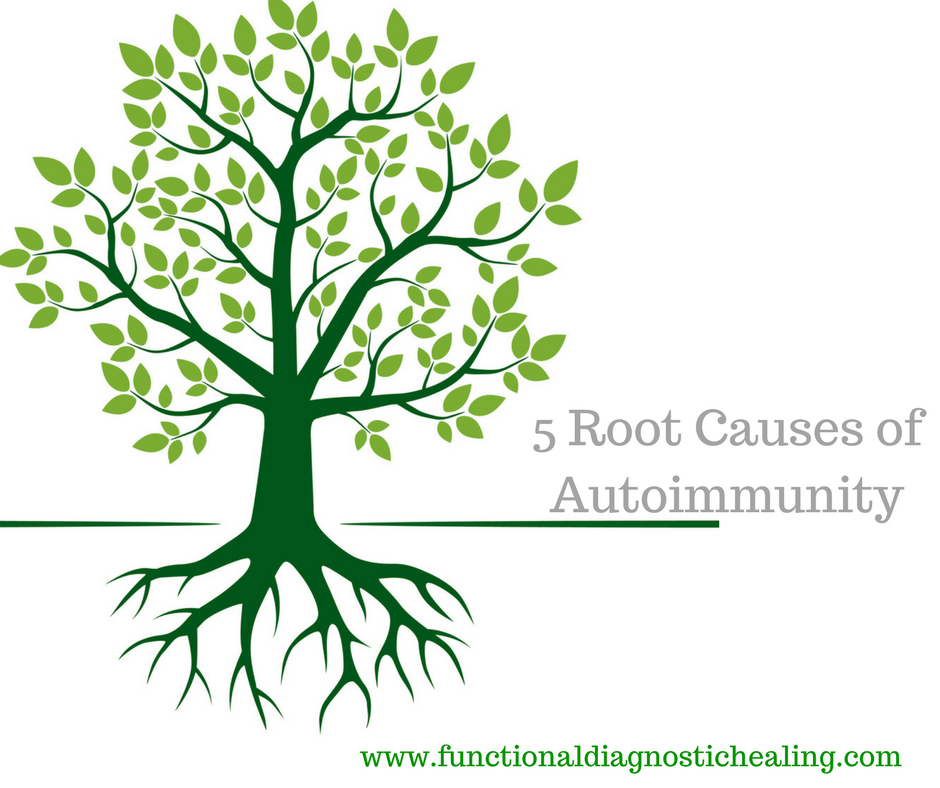|
In functional medicine, we always want to be looking upstream and trying to gather as many clues and evidence through testing and intake to determine what is at the root cause of the chronic symptoms in question. We then work to treat and resolve the underlying problem(s) and this helps to reduce symptoms and restore health long term. But what happens when someone is reacting to or not tolerating the treatment needed to resolve their root cause problems? This is the biggest challenge I see for those who have MCAS and histamine intolerance. Their immune systems are so hyper-reactive and overly sensitive that they will often have trouble tolerating the treatment needed to resolve the root cause issues like parasites, lyme, SIBO, retroviruses, or mold. I experienced this personally when I was being treated for Lyme disease and mold illness aggressively for 2 years before knowing that MCAS was playing a role in my symptoms. My MCAS manifested as extreme body pain, even after 2 years of Lyme disease treatment my pain wasn't getting any better, in fact, it was getting worse!! I also found myself becoming very sensitive and reactive to foods, smells, chemicals, EMF's, and even most of the medications and supplements that were treating my illness. I could not tolerate treatment and was just getting sicker and feeling worse. Figuring out I had MCAS and adding in both pharmaceutical and natural anti-histamines and mast cell stabilizers was a game changer for me. My pain levels dropped slowly, my energy improved, my rashes disappeared and my food reactions lessened. Overtime I finally started to be able to tolerate the treatment I needed to resolve my root causes. After my personal experience and professionally working with lots of mast cell clients, I now understand that its imperative to get the immune system to calm down and be less reactive before you will be able to tolerate treatment for and resolve what's at the root cause of your MCAS. My practice is now 90% MCAS patients and every client is unique in what combination of anti-histamines and mast cell stabilizers work to calm down the immune response and be less reactive. I use special lab testing to help give me clues about each clients bio-individual triggers, metabolism, and root cause issues. This helps me make educated recommendations in the area of natural anti-histamines and mast cell stabilizers that will work for each personal individually. There are some nuances to choosing the right combination of supplements and it often takes some trail and error. This is why I highly recommend working with a practitioner who knows and understands this well to help guide your choices. You will want to choose clean formulations with minimal or no fillers. I suggest single active ingredient items so that you know what is helping or hurting you. If you are someone who has food reactions, you will want to time these items to be taken 15-30 minutes prior to meals. This timing can help to reduce post meal time mast cell reactions. Lastly, never try more than one of these at the same time. Always try anything that is new to you alone with no other changes or adjustments in food or medications, titrate up to the recommended dose (or your tolerated dose) slowly and then add the next item. I typically recommend a 3 day trial before increasing the dose or adding the next supplement. Here are the natural options that I use most in my practice... 15 Natural Anti-Histamines & Mast Cell Stabilizers:
These go-to, natural mast cell stabilizers can be used in combination with pharmaceuticals like ketotifen, cromolyn, singular, and over the counter anti-histamines like Benadryl if needed. I highly recommend working with an experienced practitioner who can help you choose the products that meet your needs best. Always keep in mind these anti-histamines and mast cell stabilizers are not going to fix the underlying, or root problem(s) that are causing the MCA symptoms. They will simply help to lower reactions and calm the immune response down so that you can start to treat the underlying reasons your mast cells are over-stimulated in the first place. If you want to learn more about my approach for reducing MC reactions and improving root cause treatment tolerance and effectiveness, check out my free online webinar. References:
50 Comments
It's been almost 10 years since the onset of the my chronic Lyme disease symptoms following a car accident in 2008 and I can't believe the roller coaster this journey has taken me on! Looking back, there were a few key discoveries and turning points that really shifted my healing into the next level and allowed me to make significantly more progress.
One of those things was figuring out that I was suffering from Mast Cell Activation Syndrome (MCAS). Mast cells are a type of immune cell that are present in almost all tissues in the human body but especially in the gut lining, connective tissue, cardiovascular system, respiratory system, and nervous system. They are part of an allergic response used to protect us from injury or threat. When mast cells encounter a "threat or perceived threat" they release chemical mediators like histamine, leukotrienes, interleukins, prostaglandins, and cytokines. These mediators are like signals to the immune system - you can think of them like a fire alarm, letting the fireman know its time to fight a fire. The mediators are a signal to the immune system that there is threat or injury that needs healing or addressing. We all need mast cells in times of allergic response or injury to heal, however in MCAS, your mast cells are hyper-stimulated and over-activated, releasing large amounts of mediators and setting the stage for chronic immune activation and autoimmunity along with a host of pretty serious multi-systemic symptoms. My MCAS manifested as extreme body pain, even after 3 years of Lyme disease treatment my pain wasn't getting any better, in fact, it was getting worse!! I also found myself becoming very sensitive and reactive to foods, smells, chemicals, EMF's, and even most of the medications and supplements that were supposed to be helping me feel better. I would have constant migraine headaches, my heart would race and my body would feel hot and in terrible pain after I would eat a meal. I was down to like 5 or 6 foods that I could eat without having a reaction. It was incredibly frustrating and I felt so stuck!! When I started to get rashes all over my body (which I had never had prior), my new functional doctor at the time suspected MCAS and we added some anti-histamine and mast cell stabilizers into my protocol. Her suspicion was confirmed when after a month or so, I slowly started to stabilize, my pain dropped a noticeable amount, and I was having less migraines. This is when I took a deep dive into researching and understanding not only the manifestations of MCAS and how to get the immune system to calm down and act normally but also identifying the root causes behind this type of immune activation. The protocols I've implemented based on my research have helped me to accelerate my recovery and live a much more functional life while I continue to heal from chronic Lyme disease. I find that MCAS is a very common condition in the chronically ill and especially so for patients who have not responded to standard treatment protocols well. I've now worked with dozens and dozens of people who suffer from this type of immune dysfunction and I want to help you as well! So how do you know if MCAS might be playing a role in your illness? Here are some clear symptoms to look for... 9 Signs You May Be Dealing with MCAS or Histamine Intolerance:
How Does MCAS Differ from Histamine Intolerance? Histamine intolerance is a term that you may have heard more commonly than MCAS and is typically categorized as someone who is histamine sensitive specifically due to a genetic mutation in which they have a deficiency in the enzyme (DAO) needed to break down histamine in the gut. This causes histamine levels build up and people start reacting to high histamine foods or to environmental stimulus easily. Excess histamine is the main problem here. In MCAS, the mast cells are being over activated which is causing the release of more than just histamine but other mediators as well like cytokines, leukotrienes, interleukins, and prostaglandins. Testing & Treatment to Consider for MCAS: Standard testing includes serum and urine analysis inlcuding: Serum Tryptase, Serum ChromograninA, Whole Blood Histamine (chilled plasma) Heparin (chilled plasma), N-Methylhistamine (24hr urine), and Prostaglandin F2alpha (24hr urine). But again, these tests are not very accurate and will often give a false negative picture. That's why its a clinical diagnosis based on the presence of the symptoms above in at least two body systems and a positive response or symptom reduction with anti-histamines and/or mast cell stabilizers. Next week's blog post will be spent discussing the anti-histamine and mast cell stabilizer options along with tips on how to find the right combination of medications/supplements to help reduce over-active mast cells and get symptom relief. I will also share important steps to take, outside of medications and supplements, that will help to reduce your mast cell reactions and help you get your life back! I look forward to catching you all next week! Thanks for tuning in! Billie P.S. - You may also be interested in my Free, Live Webinar, Mast Cell Activation Solutions, which is scheduled for Saturday, 9/29 at 10:30am MT. Click the image below to learn more or sign up. Hippocrates was quoted saying, " All disease begins in the gut" and today we have mounting evidence showing that many of our modern diseases are in fact rooted in the gut, especially autoimmune diseases, which are affecting more and more people each year. A vast array of chronic inflammatory symptoms ranging from digestive distress, to chronic fatigue, to hormonal imbalances, to joint pain, depression, anxiety, headaches, skin rashes and more are all rooted in the gut.
Studies actually show that over 70% of our immune system resides in the gut and it's also where 80% of our serotonin (the primary neurotransmitter that regulates mood) is manufactured as well. In fact, I've personally experienced how treating the root cause of my leaky gut significantly lowered my depression and balanced my mood! What is Leaky Gut or Intestinal Permeability? The single layer of cells that lines your intestinal track creates a physical barrier between your bloodstream and the outside world. As foods come into your body, they may contain bacteria, viruses, and parasites as well as pesticides. Your gut lining is your first line of defense against these pathogens and toxins. But the lining of your gut can get damaged by inflammatory foods like gluten, toxins like heavy metals and pesticides, pharmaceuticals like antibiotics and NSAID's, as well as pathogenic infections, bacterial imbalances, and stress. A damaged gut lining gets holes in it, for lack of a better term, and you develop what's medically named, intestinal permeability, or "leaky gut". This means that pathogens, toxins, and food proteins can now pass through those "leaks" and into your bloodstream where they interact with your immune cells. The immune system "tags" these food proteins and toxins as "dangerous intruders or pathogens" because they are not supposed to be in the bloodstream and begins to attack them. This immune response leads to the symptoms listed below which is why if you have any of these symptoms, its likely that you have leaky gut. Some experts have estimated that intestinal permeability affects over 70% of our modern population. 9 Signs You Have Leaky Gut:
Leaky Gut - Autoimmunity Connection: When your gut is leaky and more and more particles are able to escape into your bloodstream, your immune system begins to get into a pattern of high alert which causes it to become overstressed and fire less accurately, sometimes leading to an attack on your own body's tissues or an autoimmune attack. Eventually, this will develop into full-blown autoimmunity if your gut is not repaired. In addition, your immune system starts making antibodies against the substances that have escaped into your bloodstream. Many of these foreign invaders, especially gluten and dairy, in particular–look very similar to your own body’s cells, causing your immune system to get confused and accidentally attack your tissues. This process of mistaken identity is called molecular mimicry, and is another way that leaky gut can trigger autoimmune disease. Healing Leaky Gut: If you want to reverse autoimmunity and heal your gut, I suggest working with a skilled functional medicine practitioner who can help you identify all the root causes of your symptoms and take you step by step through a personalized gut healing protocol. You and your practitioner will need to identify and remove all the inflammatory dietary and lifestyle items that are contributing to your intestinal permeability like food sensitivities, toxic exposures, and stress. You will also need to identify and treat pathogenic infections in the gut, reinoculate your immune system with beneficial bacteria, and lastly provide your gut with the key nutrients it needs to repair the "leaks and holes" in the lining. In my practice, I find that 80% or more of my clients have leaky gut at the root of their chronic symptoms. When we focus our approach towards healing the gut by eliminating inflammatory triggers, rebalancing the gut microbiome, and repairing the intestinal lining, people begin to heal, get rid of chronic symptoms, and get their life back! Are you ready to get rid of your chronic symptoms? If so, I'd love to help you! If you want to learn more about what to expect when working with me- you can schedule a complimentary 15 minute new client session to understand how my root cause approach can help you reclaim your health! Or check out the gut healing programs I offer on my Work with Me page and read testimonials of others who have worked with me. In good health, Billie Did you know that unlike food allergies, which tend to be very obvious, food sensitivities can go unnoticed and unidentified while silently wrecking havoc on your health?
Food allergies are typically quite obvious with symptoms occurring immediately or within a short period of time after exposure. This would represent an IgE reaction of your immune system. For example, someone who is allergic to peanuts may have their tongue or throat swell up with exposure and need immediate care. Food sensitivities on the other hand, are often dose dependent and include delayed reactions, occurring anywhere from 1 to 72 hours post exposure. They include IgG reactions as well as mediator release from white blood cells including: histamine, leukotrienes, cytokines, prostaglandins, and interleukins just to name a few. In fact mediator release is the key event that increases systemic inflammation and leads to chronic symptoms like: brain fog, pain, fatigue, digestive distress, headaches, rashes, anxiety, depression, insomnia, weight gain, and more. Even so called "healthy" foods like broccoli, avocado, garlic, or blueberries, for example, can become triggers that lead to unwanted and chronic symptoms. This truely brings to light the saying that "one woman's food is another woman's poison." Theses inflammatory reactions to foods create a viscous cycle in that they contribute to increased intestinal permeability (or leaky gut) while also being a direct root cause of the symptoms of inflammation. When your gut is permeable, it has small holes or "leaks" where food proteins that are normally kept inside the gut can now enter the bloodstream. This activates the white blood cells in your immune system to release mediators which lead to the chronic and unwanted symptoms of systemic inflammation listed above. Removing foods that you are reacting to is the first and most important step in healing the gut, reducing intestinal permeability, and decreasing those chronic symptoms. You will not be successful healing the gut without removing these foods because of the fact that mediator release makes the gut more permeable, continuing this viscous cycle. How to Identify Food Sensitivities: So what can you do about it? In my practice, I almost exclusively use the MRT (mediator release test) which is a blood test that measures volumetric changes in mediator release to help us identify which foods that you are specifically reacting to and which foods are the safest for you. I find that this test is the most clinically effective because it is measuring the same mediators that raise systemic inflammation. Once we identify the foods causing you the most inflammation, we remove those foods from your diet for at least 90 days. I find that almost all of my patients experience a significant reduction or elimination in their chronic symptoms when we do this. I have personally had huge success using this test to identity my own sensitivities and it was one of the key pieces that has allowed me to start to heal my gut and reverse my crippling, reactive symptoms. You can learn more about the MRT Test on their website by clicking here. If you want to know which foods could be contributing to your chronic symptoms and are looking to heal your gut and reverse your autoimmunity, I'd love to help you! You can learn more about working with me here. And you can read some testimonials from others who have worked with me here. I hope you have found this information to be helpful. Feel free to post questions below or contact me directly here. In Good Health, Billie Did you know there are 70-80 million people in the U.S. alone that are suffering with an autoimmune disease and up to 150 million people worldwide? These numbers have increased threefold over the last 50 years and are continuing to rise.
What is Autoimmunity? Autoimmune disease is a whole spectrum of illnesses that all have common root causes, even when they show up in different parts of the body. The commonality among these illnesses is that the body is attacking its own tissues. This can happen when our immune system no longer recognizes our own cells as safe, it identifies them as harmful intruders and launches an attack against them. There are many things that can change the shape and appearance of your cells which is what's at the root cause of these chronic illnesses. The traditional western medicine approach to these illnesses to prescribe steroids and other immunosuppressant drugs to reduce the immune system's response. They are focused on "diagnosing" your illness and then "treating" you with pharmaceuticals to reduce symptoms. These drugs to do not to anything to cure or reverse your illness or help you heal, they are simply "masking" the symptoms of your illness at best. And they come with horrible side affects like a insomnia, depression, and immune deficiency making you more likely to get infections that will only make you sicker. As someone who was diagnosed with 3 different autoimmune conditions by 3 different specialists, I understand just how frustrating and hopeless it is be given a diagnosis(s) without any answers as to the known cause. That's why I became a Functional Diagnostic Nutrition Practitioner so that I could figure out my own answers, reverse my illness, and help others do the same. In Functional Medicine, our approach is to ask the questions, "why are you sick?", "why did you develop this set of symptoms or this illness?", "what is at the root cause of this illness?". What we find when we ask these questions is that regardless of the type of symptoms that are being expressed or the type of autoimmune disease that has been diagnosed, there are common things that we find at the root cause of every autoimmune condition. 5 Root Causes of Autoimmunity:
The good news is that once you know the underlying cause(s) of your condition, you can truly support your immune's system ability to heal itself. In my practice I use special functional lab work to identify what's at the root cause of your autoimmune condition and then design a personalized dietary, nutrient replenishment, and lifestyle protocol to help lower inflammation and slow or reverse autoimmunity. So if you are sick of being sick and tired of not having answers as to the development of your condition, check out my approach and read about what it's like to work with me,. If you like what you see, consider a 15 minute free consultation to learn how to identify the underlying causes of your autoimmune condition and get rid of chronic symptoms that dominate your daily life!  Are you suffering from stubborn health problems that won't go away no matter what you try? Things like constipation, diarrhea, acid reflux, migraine headaches, chronic joint pain, fibromyalgia, chronic fatigue, inability to lose weight, eczema or skin rashes, or chronic brain fog are some of the most common symptoms related to specific immune reactions to the foods we eat. In fact, the evidence continues to grow that sensitivities to food are what's behind many of our ongoing health problems. Experts believe that as many as 50% of us may be experiencing adverse symptoms that can make it difficult to maintain a healthy weight and may keep us from reaching our health and wellness goals. In this week's edition of What's That Wednesday?! we will talk about the most common symptoms and give you some action steps to find out if food sensitivities are affecting your health. Food Allergies vs. Food Sensitivities: It's common to use the words allergy and sensitivity interchangeably, but its important to understand that they mean slightly different things. A food allergy is FIXED and when triggered causes an immediate immune response; release of antibodies into the bloodstream to combat inflammation and potential organ dysfunction. Once you have a food allergy, for example to shellfish or nuts, you are generally allergic forever and must completely avoid that food. A food sensitivity is VARIABLE, meaning that the immune response might be slower and more subtle and your symptoms may change or shift overtime. Food sensitivity reactions can be delayed for hours or even days after ingestion. And often, food sensitives are dose related. This means that a small amount of a certain food may not cause noticeable symptoms, but a larger amount does. This makes them a little harder to understand and identify. Testing for Food Sensitivities: The truth is that many MD's do not recognize food sensitivities because standard food allergy testing may not be precise enough to detect low levels of food substances that could cause symptoms. For example, an allergist will give you an ELISA IgG blood test, but often times these result in a false negative because this test only detects one type of food reaction, type 3, which only covers about 25% of all food sensitivity reactions. For my clients, I recommend and order a MRT (Mediator Release Test) Food Sensitivity Test since this test has been shown to be the most comprehensive on the market because it is able to test for the one thing that all food sensitivities have in common - an inflammatory reaction! All diet-induced inflammatory reactions release proinflammatory and proalgesic "mediators" from white blood cells. "Mediators" include cytokines, histamine, leukotrienes, prostaglandins, etc., from neutrophils, monocytes, eosinophils, and lymphocytes that lead to all the negative clinical effects a food sensitivity sufferer endures. The MRT test measures these "mediators" or inflammatory responses to 150 different foods and food chemicals and gives you a list of RED (avoid), YELLOW (eat in small amounts), and GREEN (non-reactive foods that are safest and best). This test is a very effective tool and I consistently see significant clinical improvement in my clients by implementing a diet based on the MRT results. If you'd like to understand if the MRT test is right for you or if you are interested in having an MRT test ordered for you, I offer a free 15 minute phone consultation. Just contact me to set up a time - I'd be honored to speak with you! Top 5 Most Common Food Sensitivities:
Other common foods that cause sensitives include: eggs, citrus, beans, nuts, yeast, fish/shellfish, and nightshade vegetables (tomatoes, potatoes, eggplant, and peppers). Most Common Food Sensitivity Symptoms:
If you have any of these symptoms on a regular basis - daily or even weekly, your body is telling you that something or somethings are out of balance. And it could be as easy as changing some of the food you eat! Foods that our body is sensitive can initiate an immune response reaction that can lead to certain hormones like insulin and cortisol to be released in larger than desired amounts- these are both "fat storage hormones" and will signal your body to store fat in those hard to get rid of places like your belly, hips. thighs and the back of the arms. Properly identifying and removing foods that you are sensitive to can make a HUGE difference in your quality of life - and this is something I can attest to personally. A few years ago, after going through an elimination diet myself, I learned that I in fact had sensitives to gluten, dairy, citric acid, yeast, and nightshade vegetables. When I eliminated these from my diet, I dropped the 15 extra pounds I'd been carrying around all my life and could never get rid of, saw my lifelong IBS symptoms completely disappear, my energy increase, and my menstrual cycle completely balance out. Then earlier this year, I suddenly had some rashes appearing regularly on my torso , so I decided to do another MRT test to learn what may be affecting me in addition to the sensitives I had already cut out. After adjusting my diet to incorporate the tests results, my rashes cleared within a couple weeks. This was a reminder to me that food sensitivities can change over time, especially for those who are chronically ill with infection or autoimmune conditions. So what are you waiting for?! Follow these simple steps below to find out if food sensitivities are derailing your health goals. Steps to Take For Finding Food Sensitivities:
Once you've identified the foods that make your body feel sick, you can get rid of them from your diet permanently and enjoy a healthier you without the extra chronic symptoms of pain, fatigue, and digestive distress! If you find that you have many foods you are sensitive to or if this process seems overwhelming to do on your own - we've got your back! Our nutritional coaching services provide expertise, support, and most importantly, DELICIOUS and EASY RECIPES, as you go through the elimination diet. Our goal is to help you feel satisfied and not deprived and make the process as successful and seamless as possible. Please let us know if we can be of any help to you. In good health, ~Billie & Jennifer |
Billie Shellist, FDN-P
I practice functional nutrition, an approach that allows me to look at your entire health history and help you find the "root causes" of your chronic health complaints. This cuts out the trial and error process and helps you get real symptom relief and resolution! Food is medicine and knowledge is power -I hope you enjoy my anti-inflammatory recipes which are gluten, dairy, and soy free as well as very low grain and sugar. If you'd like to heal from the root cause(s) of your chronic symptoms, try starting with a complimentary 15-minute consultation. Click here to request your free session. |









